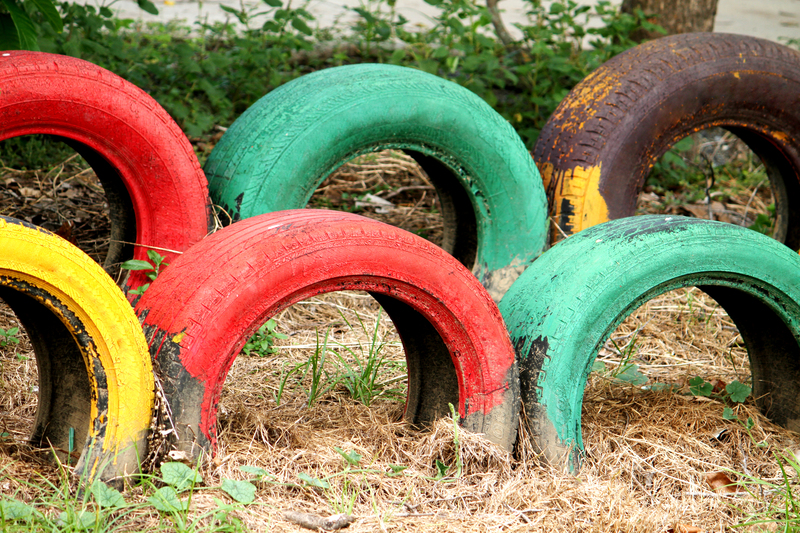Keeping Our Streets Clean with Proper PPE Waste Practices: A Comprehensive Guide
Personal Protective Equipment (PPE) has become a ubiquitous part of our daily lives, especially since the outbreak of the COVID-19 pandemic. While these items, such as face masks, gloves, and face shields, play a crucial role in protecting public health, they have also contributed to a significant environmental challenge. Proper PPE waste disposal and management are now vital duties for individuals and communities around the globe. In this article, we'll explore the importance of keeping our streets clean with proper PPE waste practices, actionable tips to handle PPE waste, and community-level strategies for maintaining a cleaner, healthier environment.

Why PPE Waste Is a Growing Concern
When inadequately disposed of, PPE creates critical issues for urban cleanliness and environmental sustainability. Single-use masks and gloves that end up on streets, sidewalks, and waterways not only mar the appearance of our neighborhoods but also pose health risks and threaten wildlife.
- Visual Pollution: Littered PPE detracts from the beauty of our cities and creates an unsightly urban landscape.
- Public Health Risks: Contaminated masks and gloves could harbor viruses, bacteria, or harmful chemicals that pose risks to sanitation workers and the general public.
- Environmental Threats: Most PPE items are made from plastics that do not biodegrade, polluting soils and waterways, entangling wildlife, and breaking down into microplastics.
Proper PPE waste practices are more crucial than ever to safeguard both public health and the environment. Adopting best practices for handling, collecting, and disposing of PPE waste can make a tangible difference in keeping our streets clean.
Understanding PPE Waste: Types and Challenges
PPE waste includes a broad range of single-use protective items:
- Masks (surgical, N95, cloth)
- Gloves (latex, nitrile, vinyl, plastic)
- Face shields and visors
- Disposable gowns and coveralls
- Shoe covers
Most of these items are manufactured from composite plastics, rubber, and synthetic fibers, making them difficult--and often impossible--to recycle through conventional systems. This underscores the importance of responsible disposal and innovative waste management strategies.
The Scale of the Problem
According to recent studies, an estimated 129 billion face masks and 65 billion gloves were used worldwide every month at the peak of the COVID-19 pandemic. Such staggering numbers indicate the urgent need for widespread adoption of proper PPE waste practices.
How PPE Litter Affects Urban Cleanliness
Discarded PPE waste on streets and in public spaces has several negative consequences:
- Clogged Drainage Systems: PPE waste can block storm drains, increasing flood risks and sanitation costs.
- Increased Cleaning Costs: Municipalities must allocate more resources to collect scattered masks and gloves, diverting funds from other essential services.
- Spread of Diseases: Used PPE can potentially spread infectious agents if picked up by children, animals, or sanitation workers without adequate protection.
Clearly, proper PPE waste management is not just about maintaining appearances; it's a matter of public safety and environmental stewardship.
Best Practices for PPE Waste Management
For Individuals
- Carry a Sealable Bag: Always keep a small, resealable bag handy for used masks or gloves when you're on the go. This prevents you from tossing them onto sidewalks or streets when no bin is available.
- Dispose of PPE Responsibly: Place used PPE in a lined trash bin. Do not recycle; most municipal recycling programs are unable to process PPE due to contamination and material type.
- Never Flush PPE: Flushing masks or gloves down the toilet can lead to severe blockages and environmental contamination.
- Use Reusable PPE When Possible: Consider washable, cloth masks instead of single-use items to cut down on waste.
- Disinfect Before Disposal: If possible, spray used PPE with a disinfectant before placing it in the bin. This reduces disease risk for sanitation workers.
For Businesses and Workplaces
- Install Dedicated PPE Bins: Place clearly marked, covered bins for PPE waste at entrances, exits, and high-traffic areas.
- Educate Staff and Patrons: Display signage demonstrating proper PPE disposal techniques to encourage responsible habits.
- Monitor and Empty Bins Frequently: Prevent overflow and reduce litter by regularly servicing PPE waste receptacles.
- Stock Up on Supplies: Provide sanitary, disposable gloves or tissues for staff handling PPE bins to minimize contagion risks.
For Communities and Local Governments
- Organize Community Clean-Up Drives: Regular street clean-ups can help gather stray PPE while spreading awareness about proper waste practices.
- Launch Awareness Campaigns: Inform the public on the dangers of PPE litter and share best practices through social media, posters, and workshops.
- Enforce Littering Fines: Implement and publicize penalties for improper disposal of PPE waste.
- Support Research and Recycling Initiatives: Encourage or invest in the development of biodegradable PPE and recycling innovations that allow safer, more sustainable waste management.
Innovative Solutions for PPE Waste
The Rise of PPE Recycling Programs
Some companies are pioneering solutions to the PPE waste crisis. Specialized programs now collect and process used masks and gloves for conversion into materials like park benches, road surfaces, or construction bricks. While these efforts are still in their infancy, they provide a hopeful path forward for reducing the negative environmental impacts of PPE waste. Investing in and supporting such innovative waste practices can help keep our streets clean in the long term.
Biodegradable and Reusable PPE
Researchers and manufacturers are also developing eco-friendly PPE alternatives made from plant-based polymers or fully compostable materials. Reusable masks and properly sanitized face shields can further decrease the volume of single-use PPE entering the waste stream.
Community Engagement: The Key to Clean Streets
Effective PPE waste management requires widespread community participation, from the individual carrying a used mask in a bag to municipalities organizing mass clean-ups. Here's how communities can work together for proper PPE waste practices:
- School Programs: Educate children and teens about the correct way to dispose of PPE and the reasons behind it.
- Public Art and Awareness: Use creative displays made from collected PPE to draw attention to the issue and foster discussion.
- Neighborhood Watch Initiatives: Encourage citizens to report overflowing PPE bins or littering hotspots to authorities.
- Volunteer Groups: Establish street-cleaning teams equipped with gloves, pickers, and separate collection bags for PPE waste.
Health and Safety Tips for Handling PPE Waste
Disposing of used PPE correctly is important, but so is protecting yourself and others during the process. Follow these safety tips:
- Wear Gloves: Use gloves when picking up used PPE from public spaces, and avoid touching your face.
- Use Separate Bags: Collect PPE waste in dedicated, closed bags to prevent contact with other trash.
- Wash Hands Thoroughly: Wash your hands with soap and water after handling PPE waste. Use hand sanitizer if soap isn't readily available.
- Follow Local Guidelines: Abide by specific municipal directives regarding PPE waste collection, particularly if you work in healthcare or sanitation.
The Benefits of Proper PPE Waste Practices
- Cleaner Public Spaces: Responsible disposal keeps streets and parks inviting for everyone.
- Safer Environments: Reduced risk of exposure to pathogens protects sanitation workers and the public.
- Wildlife Protection: Keeps harmful plastics out of ecosystems, supporting biodiversity.
- Sustainability: Encourages the shift toward biodegradable and reusable protective equipment.
- Community Pride: Shared responsibility for clean streets fosters civic engagement and pride.

Frequently Asked Questions about PPE Waste Management
Can PPE be recycled?
Most commercial recycling pickups do not currently accept PPE due to contamination and material complexity. However, specialized companies have started to collect and recycle some types of PPE in bulk. Unless you know a facility accepts it, always throw used PPE in a proper trash bin.
What should I do if I see PPE litter in my community?
If it is safe to do so, use gloves to pick up the item and place it in a sealed bag or designated PPE waste bin. Report areas with heavy littering to your local authorities to prompt clean-up efforts.
Are cloth masks better for the environment?
Yes, reusable cloth masks are a more sustainable choice when properly sanitized after each use. For medical situations requiring higher-grade masks, focus on proper disposal to minimize environmental impact.
Why can't I throw PPE in the recycling bin?
Because PPE is often contaminated and made from plastic composites, it clogs recycling machinery and can introduce hazards into the recycling stream. Always dispose of used PPE in lined trash bins unless participating in a specialized recycling program.
Conclusion: Our Shared Responsibility
Keeping our streets clean with proper PPE waste practices is an urgent challenge and an opportunity for positive collective action. By educating ourselves and our communities, supporting innovative solutions, and sincerely committing to everyday best practices, we each play a part in preserving public health and the environment. Whether you're a concerned citizen, business owner, educator, or policymaker, the steps you take today will shape the cleanliness and well-being of our cities for years to come.
Make the commitment to responsible PPE waste management today, and help keep our streets clean for all!
